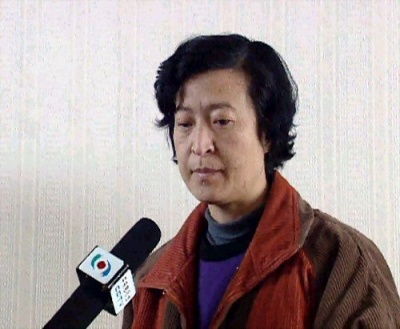“Leaders first”的版本间的差异
来自China Digital Space
| 第3行: | 第3行: | ||
In 1994, in Karamay (克拉玛依), Xinjiang province, a fire broke out in a theater in which 1,000 children were watching a special variety show. As the fire spread, a woman shouted, “Everyone sit down. Don’t move. Let the leaders leave first!” (大家坐下,不要动,让领导先走). The fire resulted in 325 deaths, 288 of whom were children. Twenty Party officials were said to have escaped, among them Kuang Li (况丽), who was accused of giving the famous command. | In 1994, in Karamay (克拉玛依), Xinjiang province, a fire broke out in a theater in which 1,000 children were watching a special variety show. As the fire spread, a woman shouted, “Everyone sit down. Don’t move. Let the leaders leave first!” (大家坐下,不要动,让领导先走). The fire resulted in 325 deaths, 288 of whom were children. Twenty Party officials were said to have escaped, among them Kuang Li (况丽), who was accused of giving the famous command. | ||
| − | “Let the leaders leave first,” along with [http://chinadigitaltimes.net/2006/01/ten-famous-sayings-in-china-6park/ other such phrases] | + | “Let the leaders leave first,” along with [http://chinadigitaltimes.net/2006/01/ten-famous-sayings-in-china-6park/ other such phrases] became popular online and expresses the the feeling many people have that Party officials put their own interests ahead of the needs of the Chinese people. |
Below are excerpts of an English-language account of the event, “[http://www.timesonline.co.uk/tol/news/world/asia/article1752202.ece China aghast at 'sacrifice' of 288 pupils],” published twelve years after the incident in the Times Online: | Below are excerpts of an English-language account of the event, “[http://www.timesonline.co.uk/tol/news/world/asia/article1752202.ece China aghast at 'sacrifice' of 288 pupils],” published twelve years after the incident in the Times Online: | ||
2013年3月27日 (三) 20:22的版本
让领导先走 (ràng lǐngdǎo xiān zǒu): let the leaders leave first
In 1994, in Karamay (克拉玛依), Xinjiang province, a fire broke out in a theater in which 1,000 children were watching a special variety show. As the fire spread, a woman shouted, “Everyone sit down. Don’t move. Let the leaders leave first!” (大家坐下,不要动,让领导先走). The fire resulted in 325 deaths, 288 of whom were children. Twenty Party officials were said to have escaped, among them Kuang Li (况丽), who was accused of giving the famous command.
“Let the leaders leave first,” along with other such phrases became popular online and expresses the the feeling many people have that Party officials put their own interests ahead of the needs of the Chinese people.
Below are excerpts of an English-language account of the event, “China aghast at 'sacrifice' of 288 pupils,” published twelve years after the incident in the Times Online:
On December 8, 1994, 500 schoolchildren were taken to a special variety performance at a theatre in Karamay, an oil-producing city in China’s northwest Xinjiang province.
Most were the best and brightest pupils in their classes, aged between seven and 14, the offspring of well educated Han Chinese engineers and physicists brought in to exploit the mostly Muslim region’s natural resources.
After they were seated, a delegation of the city’s most senior officials entered to ritual applause and took their seats. The show began.
From the accounts of survivors, it appears that lamps near the stage either short-circuited or fell. The scenery caught fire, then exploded in a conflagration that engulfed the auditorium within a minute or two.
The first few seconds became the most controversial of the disaster. Survivors insist that a woman official immediately stood up and shouted: “Everyone keep quiet. Don’t move. Let the leaders go first.”
She has since been identified in online articles as Kuang Li, who was vice-director of the state petroleum company’s local education centre, although there has been no official confirmation of this.
The teachers obeyed, telling their charges to remain seated. Children who survived recall that everyone was paralysed by fear and confusion as flames and poisonous fumes filled the air.
By the time the dignitaries had filed out, it was too late. Teachers hurried the pupils out of their seats to other exits, only to find that the emergency doors were locked.
Because of the sensitive nature of the tragedy and how it reflected on the Party, then-CCTV president Yang Weiguang admitted to stopping reporters from airing a related broadcast, and described how the Central Propaganda Department later gave orders banning coverage of the incident.
Beijing-based poet and folk singer Zhou Yunpeng (周云蓬) wrote a song, “Don’t be a child of the Chinese,” about this incident.
See also, I only serve the leaders





